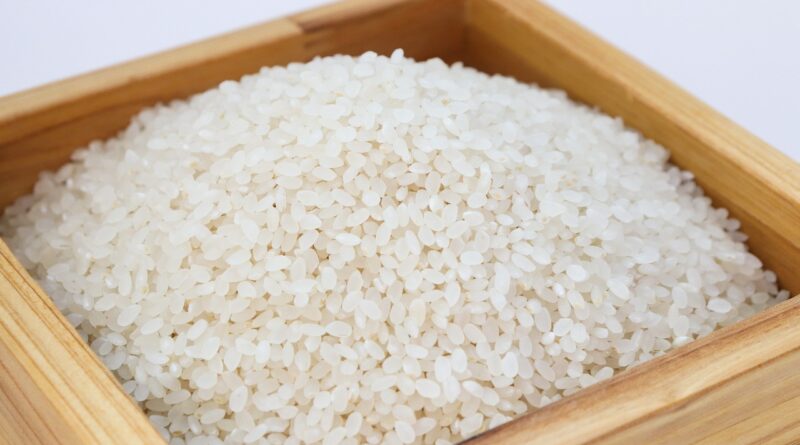India’s export quota on non-basmati rice to Nepal comes with slew of restrictions
The Indian government granted Nepal a quota of 95,000 tonnes of rice after imposing a ban on the export of non-basmati rice, but has imposed a slew of restrictive measures alongside the permission, Nepali rice importers say.
On October 18, the Indian government permitted the export of 95,000 tonnes of non-basmati white rice to Nepal, following the sweeping export ban on July 20. Under the new arrangement, each Nepali private importer has been allowed to bring in up to 5,000 tonnes of rice on a first-come, first-served basis, by agreeing on price and quality.
Subsequently, on December 26, the Nepal government asked the private importers to coordinate with the Indian supplier—the state-owned National Cooperative Exports of India.
“When we approached the National Cooperative Exports of India to import rice, we were surprised to see the slew of conditions imposed by the Indian supply body,” said Vibhor Agrawal, a member of the Association of Nepalese Rice, Oil and Pulses Industries.
He has said that the National Cooperative Exports of India has imposed a 20 percent export duty on rice and there is a requirement to make 100 percent advance payment.
The advance payment should be made within five working days of the signing of the purchase contract.
In Nepal, importers are entitled to open a letter of credit (LC), a letter from a bank guaranteeing that a buyer’s payment to a seller will be received on time. “We now have to go through a dual system—LC and 100 percent advance payment, which is not practical,” said Agrawal, director of Radha Krishna Rice Mill in Biratnagar, the supplier of Krishna Bhog premium rice.
Besides this, the imposition of the 20 percent export duty will make rice dearer by Rs300 to Rs400 per 25kg bag, traders say.
Rice importers say that they wrote to the National Cooperative Export of India on December 28 to obtain information for importing rice. They requested to provide details regarding the process for importing rice, including the quality and prices.
The National Cooperative Export, however, wrote back without disclosing information on the rice quality and prices, but stated that a 20 percent export duty would be levied and importers needed to make 100 percent advance payment within five days of the purchase agreement.
“The rules are harsh,” said Agrawal. “This shows that the Indian government has no trust in the LC [letter of credit] system in Nepal.”
“Without being assured of quality, how can we import rice?”.
On the other hand, the Nepal government imposes around 10 percent tax on rice.
“Importing rice by paying such high taxes will not be profitable for any importer,” said Agrawal.
Some importers say that since the National Cooperative Export, India is a state-owned company, it stocks rice which is cheaper in terms of value. The company provides subsidised rice to poor people in India.
They said that since the quality of rice is not assured, it has put them in a dilemma.
“None of the private importers are interested in importing rice from India. And, we won’t import if there is the 20 percent export duty,” said Agrawal.
The Indian company has given a March 31 deadline to import rice.
India imposed a ban on the export of non-basmati rice on July 20 to keep its food reserve intact amid the threat of El Niño disruptions.
On August 25, a month after imposing an export ban on non-basmati rice, India slapped a 20 percent export duty on parboiled rice.
Following the ban, Nepal’s Ministry of Industry, Commerce and Supplies, in August first week, formally requested export quotas from the Indian government, seeking 1 million tonnes of paddy and 100,000 tonnes of rice.
Within a week of the rice ban by India, prices in Nepal of all types of rice increased by Rs200 to Rs250 per 20-kg or 25-kg bag.
Out of the 95,000 tonnes, 30,000 tonnes will be imported by government corporations and private-sector suppliers will import the remaining amount.
The association has been demanding 600,000 to 1 million tonnes of paddy on a quota basis.
The association representatives met Prime Minister Pushpa Kamal Dahal and Industry Minister Ramesh Rijal on December 12 and appraised them about the issue.
“The prime minister assured us that the issue will be discussed during the seventh iteration of the Nepal-India Joint Commission meeting that officially commenced on Thursday,” said Agrawal.
Indian Foreign Minister S Jaishankar arrived in Nepal on Thursday for the meeting.
“If the government does not facilitate imports, all rice mills will be shut down,” Agrawal said.
This article has been republished from The Kathmandu Post

